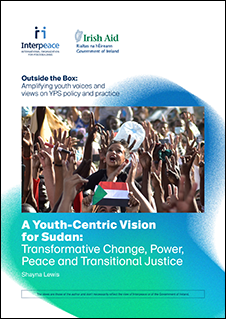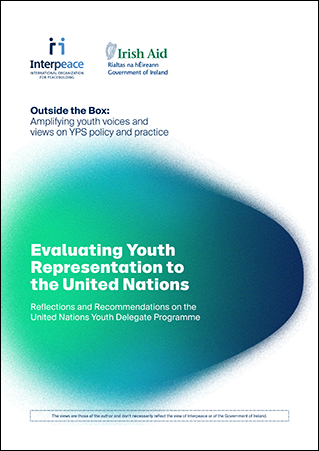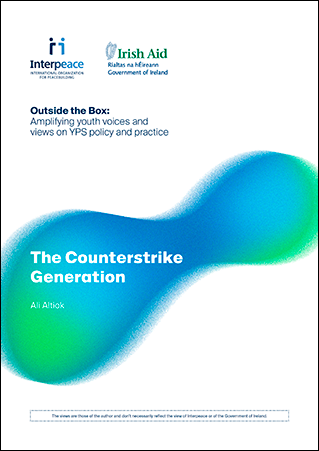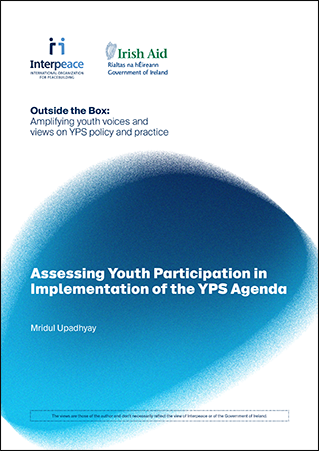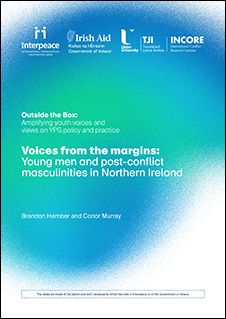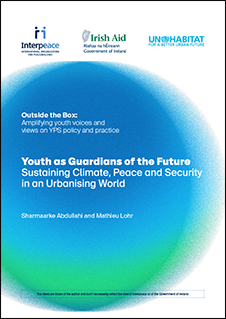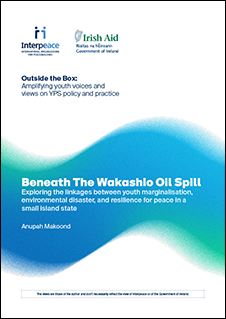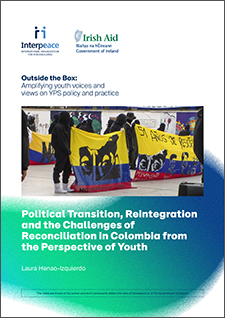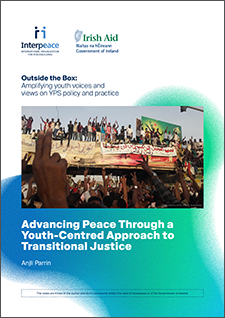Interpeace is passionately committed to the inclusive and meaningful participation of the youth in all the policy and practice arenas that impact their lives.
This reflects the organization’s commitment to local ownership and leadership in all its peacebuilding work, and therefore to the voice, agency, and leadership of young women and men in moving the Youth, Peace and Security (YPS) Agenda from policy to practice. This should not be limited to ‘youth consultations’ at policy forums/discussions, but should extend to youth involvement in the design, implementation, and evaluation of the YPS agenda (including at the country-level).
Young women and men have strongly expressed the view that they should not be “ghettoized”, or seen only in youth or sports organizations, but that their interests are varied and diversified. Young people are found in human rights organizations, in women’s organizations, in academic institutions, in trades unions, in civic organizations, in the police as well as in the communities being policed, and in many other contexts. This reflects the heterogeneity of youth and their complex and intersectional lived experiences.
In recognition of this, Interpeace is dedicated to creating this platform which amplifies the voices and leadership of young women and men, especially in many of the areas that might not get the mainstreamed attention of policy-makers at national or international level, but which are important to young people themselves.
This online portal is dedicated to creating such a space for youth-led, youth-authored and/or youth-informed policy interventions, reflections, and advocacy. Interpeace hopes that this portal not only responds to existing policy priorities, but enables the young contributors to frame and set the policy agenda themselves—so that they can define and fill the gaps in policy and practice which are not getting the necessary attention.
In 2021, Interpeace, with the support of the Ministry of Foreign Affairs of Ireland, commissioned an initial nine Policy Briefs as part of its series; “Outside the Box: Amplifying youth voices and views on YPS policy and practice.”
These Policy Briefs have all either been authored by young peacebuilders, scholars or practitioners, or have been based on participatory research or consultations with young women and men. They are all focused on policy and practice gaps in the evolution and implementation of the YPS agenda. These Briefs, published here, do not necessarily reflect the views of Interpeace, but we wanted to play a convening role in creating a platform for the initiative and uncensored voice of youth themselves.
Interpeace is delighted to have had the opportunity to collaborate and convene leading youth policy thinkers and practitioners through this platform of learning and debate about the evolving YPS agenda.



